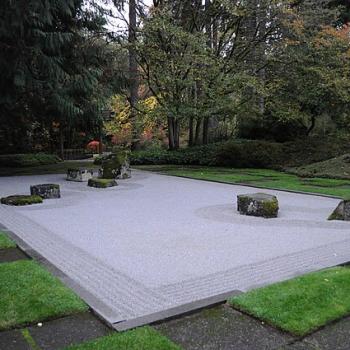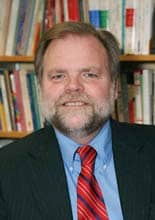I thank my God every time I remember you, constantly praying with joy in every one of my prayers for all of you, because of your sharing in the gospel from the first day until now. I am confident of this, that the one who began a good work among you will bring it to completion by the day of Jesus Christ. ~ Paul to his congregation at Philippi (Phil. 1:3-6)
Preaching is a relational as well as intellectual and spiritual practice. The "word" must be made flesh in order to transform persons, congregations, and institutions. Like prayer, preaching is all about connection—translating the wisdom of God in ways that change people's lives. Good preaching creates a synergy joining God, the preacher, congregation, and individual congregants. Words make a difference and gain power when they are grounded in spiritual experience, that is, when the preacher walks the talk, and shares her or his encounters with God in ways that give meaning and inspiration to people's lives.
Prayer is also a relational practice. Recent scientific research, influenced by contemporary physics, suggests that our prayers exemplify "non-local causation" or "distant intentionality." Our prayers radiate across the universe, touching people we may never meet, shaping the lives of loved ones, and creating a positive field of force around those for whom we pray.
I believe that prayer creates a positive spiritual environment that enables God to be more active in the lives of those for whom we pray. Prayer doesn't force God's hand, nor does God violate the divinely-inspired laws of nature in answer to prayer. Prayer changes things—in the spirit of the concept of the "tipping point"—in such a way that new possibilities and energies for healing, wholeness, and justice emerge. Walter Wink once asserted that the future belongs to the intercessors. Our prayers help create, along with God's loving care, new healing possibilities for the world as a whole and individuals in particular. Without prayer, nothing great happens in a congregation's life or a pastor's ministry.
It seems obvious, then, that preachers should pray for their congregations and, most especially, the congregation at worship. Yet, not every pastor recognizes how important prayer can be in the transformation of the relationship of pastor and congregation, and in promoting congregational vitality. When we pray with expectation and hope, new possibilities emerge for both preacher and congregation.
Praying for your congregation also changes the preacher. Despite the imperfections of every congregation, prayer connects pastor and congregation in healing ways. While prayer is not a panacea, it helps break cycles of negativity and alienation. As one pastor asserted, "This has not been an easy congregation, but I've discovered that the more I pray for a congregation as a whole and for the ‘problem people' in my ministry, the more love I have for them, and the more resourceful I am in resolving problems." While not omnipotent in result, prayer changes the spiritual energy of a congregation and relationships within the congregation that often enables pastors and congregations to "let go" of grievances and be open to forgiveness, love, and healing.
Prayer opens us to new energies for faithful worship and action. Another pastor notes, "Our church was just going along, business as usual, without any vitality, and I was even bored with our worship, until I made a commitment to pray regularly for the congregation. I asked the church council and then the church as a whole to pray that God energize the church and give it a mission. Today, while we have not become a megachurch, we are growing spiritually and numerically, and in service to the community. Without prayer, this would have been a lackluster, shrinking congregation."
Prayer is an act of hopeful expectation. Hope is not denial, nor is prayer, but a faithful openness to deeper realities within challenging situations. Often liberal and moderate churches expect too little of God and too little of ourselves, and we get exactly what we expect. When we expect great things of God and ourselves in prayer and active partnerships, great things emerge through the deeper movements of cause and effect. The bumper stickers—"expect a miracle" and "accept a miracle"—remind us that we live in an energetic, lively, and surprising universe. As Christian healer Agnes Sanford affirmed, electricity is all around, we just need to plug into it for the light to shine, and so it is with prayer. This is not magic, nor supernaturalism, but an awakening to the energy of an adventurous God "in whom we live and move and have our being" (Acts 17:28).
In this spirit, I suggest the following practices for preachers and congregations:
- Make a pastoral commitment to pray for the well-being and vitality of your congregation.
- Make a pastoral commitment to pray for vital, spirit-centered worship. (By "spirit," I mean God's immanent, all-embracing, life-transforming, all-welcoming Holy Spirit.)
- Make a pastoral commitment to pray for "problem persons" as well as advocates: experience God's light surrounding them as you visualize them as God's beloved children.
- Change your professional self-talk from limitation and negativity to abundance and affirmation.
- Invite the congregation's leaders to commit themselves to five minutes of prayer for the congregation and its mission each day.
- Sponsor a series on prayer and spirituality, as complementary with social justice and concern. Help people find a theology of prayer that they can affirm and practices that fit their personality types, theology, and lifestyles.
- Consider starting a service of blessing and healing, grounded in hopeful expectation of God's presence within the "natural" processes of cause and effect.
- Invite the congregation to pray with expectation for God's movements in worship.
- Invite two or three people to focus prayerfully on the worship service—before and after—praying for the preacher, pastoral staff, and other participants, and for God's blessing of the day.





